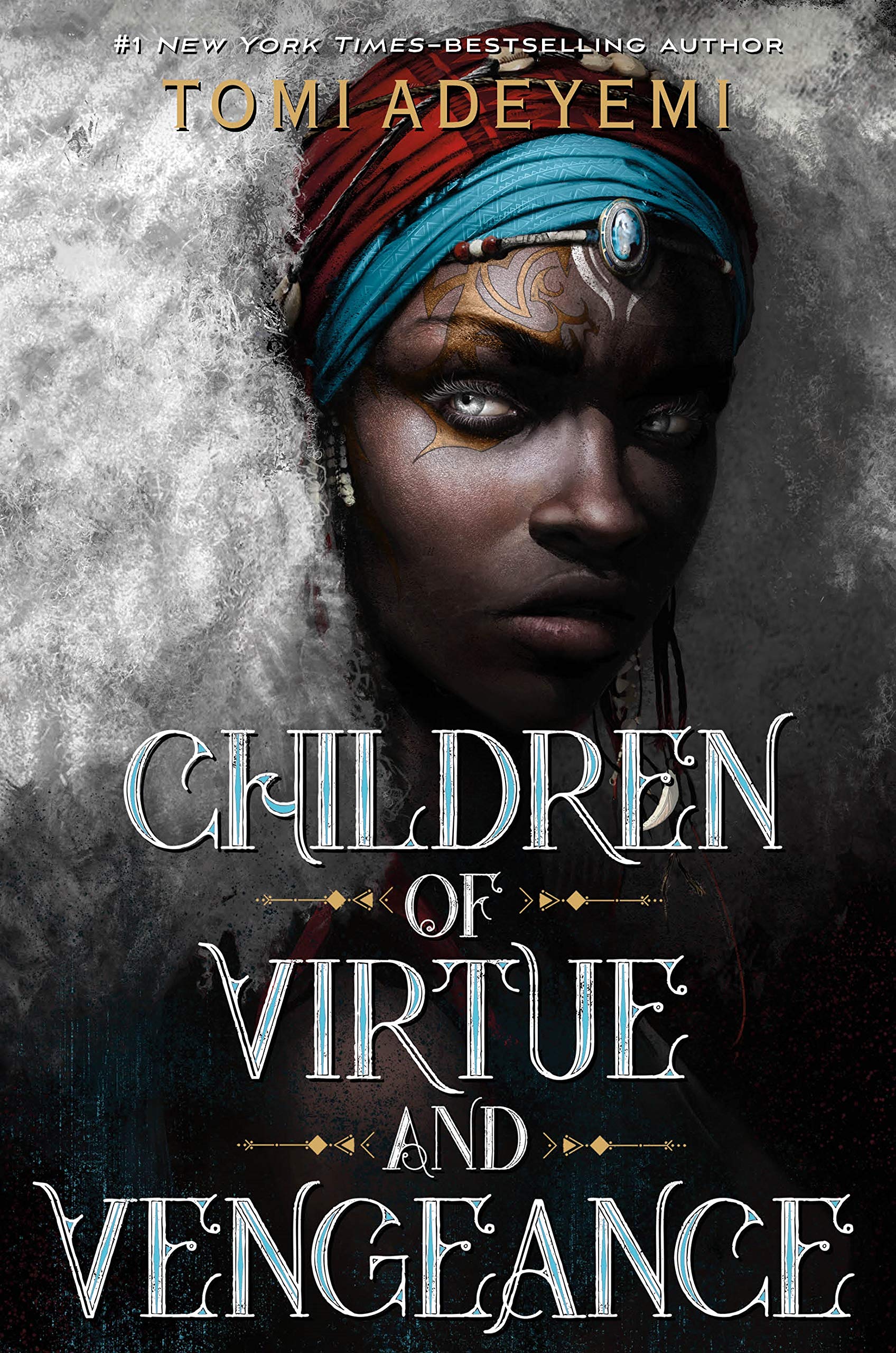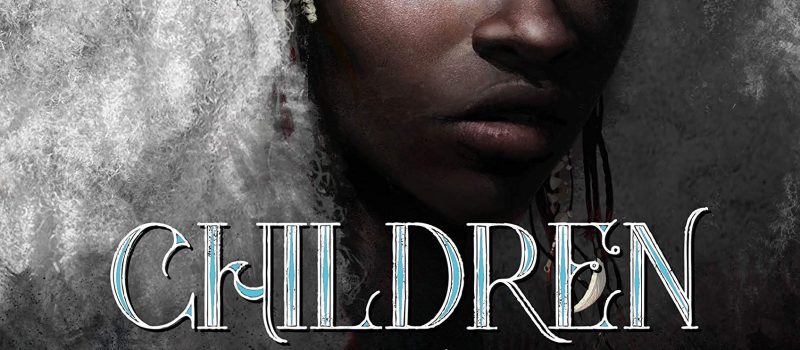Katharine Coldiron Reviews Children of Virtue and Vengeance by Tomi Adeyemi
 Children of Virtue and Vengeance, Tomi Adeyemi (Holt 978-1-25017-099-6, $19.99, 416pp, hc) December 2019.
Children of Virtue and Vengeance, Tomi Adeyemi (Holt 978-1-25017-099-6, $19.99, 416pp, hc) December 2019.
Déjà vu wracks the reading experience in Children of Virtue and Vengeance, the second novel in Tomi Adeyemi’s wildly successful Legacy of Orïsha series. That’s because it’s basically the same story as Children of Blood and Bone: the characters must recover sacred artifacts, defeat a corrupt and fascist leader, and unite despite their differing attitudes toward the future of Orïsha. Although Adeyemi deserves every bit of success she’s had for these books, because they so deftly expose inequality and racism, it’s a truism of literature that to retreat entirely into allegory does readers no favors. This book is a good example.
This time around, the corrupt and fascist leader is the queen, Nehanda, mother of Amari and Inan and wife of the fallen king Saran. She might as well be his clone. There is no meaningful difference in her cruelty, in the way she behaves about magic-users in the realm of Orïsha, and in her highest priority: preserving the throne and thus royal oppression. (The fact that she may have had an offhand mention in the first book and is suddenly the main antagonist of the second book, with the same knowledge and power as Saran, raises an eyebrow.) The artifacts this time are scrolls, from the very same temple Zélie, Inan, and Amari visited in the first book. The evil they must defeat is magic from tîtáns, nobles who have a kind of uncontrollable magic, and cênters, who can draw on that power – sometimes with fatal consequences – to wield even more strength. (And no, those names are…not exceptionally imaginative.) The central conflicts are the same as the prior book, but the emotional conflicts are murkier, and they seesaw back and forth between the three central characters in ways that ultimately exasperate rather than captivate.
Inan is firmly in the pocket of the monarchy in Children of Virtue and Vengeance, rather than an uncertain rebel. His good-hearted attempts to unite the maji and the royalty, or even to negotiate between them, continue to be thwarted by his own cowardice and by trusting the wrong people. Amari plays a weirdly hysterical role in this book, struggling with feeling like an outcast right up until she takes over an entire maji clan, intermittently fighting with Zélie and her brother, and seeking to rule over ‘‘her people’’ without fully understanding what that means. Zélie swings between rage and resolve, acting like a leader only some of the time, trapped inside exhausting emotions.
The central theme of the book is how trust and mistrust grow and shrink among allies and enemies, how tenuous and unfixed a quality trust is. That’s compelling, to be sure, but its continuous movements back and forth lead to safe, bland choices. Zélie could leave the maji camp permanently, and really throw a wrench into the plot, but she keeps coming back. Roën (a sexy mercenary) could abandon the maji and leave Zélie high and dry, as he threatens to do repeatedly, but he returns to help just when he’s needed, Han Solo-like. These continuous takebacks show Adeyemi marching her characters through a predetermined plot, rather than letting them make mistakes and choices with irrevocable consequences. It’s all a little forced, up to and including a death that motivates Zélie toward the end, one which feels essentially meaningless to the reader.
Of course, the Legacy of Orïsha has a shadow narrative: the oppression of Black people across Western history. Every event, every character in her books has an existing counterpart. Inan’s wishy-washy attitude toward the monarchy reflects attempted assimilation and conciliation, with predictably ineffective and tragic results. Amari’s naïveté about the horrors of her family’s oppression mirrors white ignorance about being Black in America. Zélie’s fury, her thirst for vengeance, and her PTSD symptoms indicate just how much Black people have had to contend with across centuries of subjugation both obvious and subtle. ‘‘We can’t trust him. We can’t trust any of them,’’ Zélie says. White people are inherently untrustworthy, is the point. (Though I’m white, I hardly disagree.)
This may mean that Children of Virtue and Vengeance (and potentially Children of Blood and Bone as well) works better as instructive metaphor than it does as fantasy novel. If so, the Legacy of Orïsha is still a worthy endeavor; generations of schoolkids could read and analyze it and see what’s under it, in a more accessible way than news footage or Audre Lorde. But it does make the series difficult to assess as an independent project. Plus, Octavia E. Butler’s novels, which also function metaphorically, are frankly better written than Adeyemi’s. The overdramatic pacing of the Legacy of Orïsha books, at a paragraph level, drains the reader’s patience, and the three narrators have totally undifferentiated voices.
Nevertheless, Adeyemi has a lot to teach us about the Black experience through these YA novels, through the excellent and detailed world she has built in them. ‘‘We pretend that magic is the root of our pain when everything rotten in this kingdom begins and ends with us,’’ Inan says to his mother, explaining what white people must realize about Black oppression. ‘‘He’ll do the right thing when it’s easy, but when it matters most, he’ll stab you in the back!’’ Zélie tells Amari of Inan, explaining the ultimate ineffectiveness of appeasers and sycophants. The power of Adeyemi’s message is undeniable, even when the package in which it’s delivered is lacking.
Katharine Coldiron is the author of Ceremonials (Kernpunkt Press), an SPD fiction bestseller. Her work as a book critic has appeared in The Washington Post, The Believer, The Guardian, and many other places. She lives in California and at kcoldiron.com.
This review and more like it in the June 2020 issue of Locus.
 While you are here, please take a moment to support Locus with a one-time or recurring donation. We rely on reader donations to keep the magazine and site going, and would like to keep the site paywall free, but WE NEED YOUR FINANCIAL SUPPORT to continue quality coverage of the science fiction and fantasy field.
While you are here, please take a moment to support Locus with a one-time or recurring donation. We rely on reader donations to keep the magazine and site going, and would like to keep the site paywall free, but WE NEED YOUR FINANCIAL SUPPORT to continue quality coverage of the science fiction and fantasy field.








